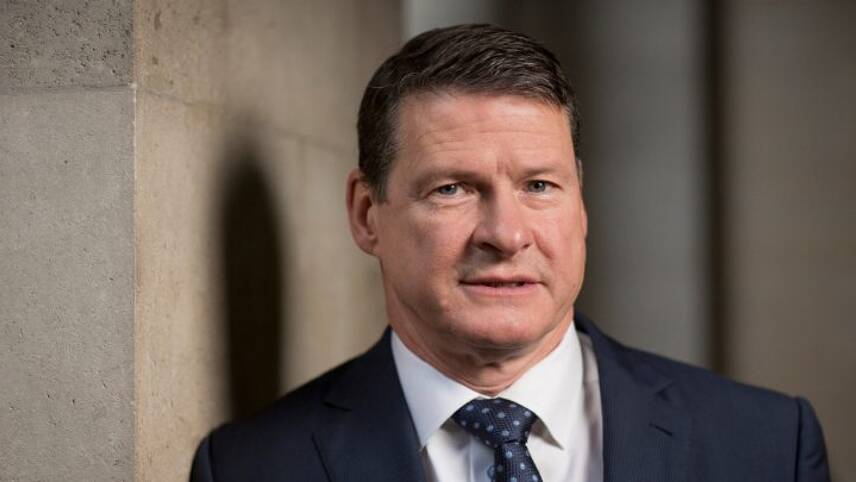Register for free and continue reading
Join our growing army of changemakers and get unlimited access to our premium content

Holliday will begin his presidency at The Energy Institute in July
Speaking at a media briefing hosted by The Energy Institute this week, Holliday explained that helping the oil and gas sector to “grapple with the challenge” of decarbonisation will be “one of the themes” of his upcoming presidency at the body, due to begin next month.
“Without question, we can’t manage the transition without the oil and gas industries playing a huge role,” Holliday said. “They’ve got the capital, the intellectual slight and the engineering ability to solve so many of these problems; the more we isolate them as enemy number one, the less we’ll get them involved.
“Moreover, we’ve got another 1.5 billion people coming onto this planet over the coming decades, and they’re going to want some energy too.
“It’s a complex issue and [oil and gas majors] have got to be in the middle of this transition. We’ve got to help them step up to the plate and do more – carbon capture and storage (CCS) being an obvious area – without making them the pariah.”
Specifically, Holliday highlighted the fact that demonising oil and gas majors could stop them from attracting the talent needed to “transform” their business models at the scale necessary to respond to climate challenges.
This comment came amid a string of research proving that millennials are becoming more concerned about the environmental and social credentials of their employers than previous generations. A recent Barclays survey found that 80% of young people believe it is important that a current or prospective employer is considered a green business, compared to 70% among their parents, while a similar study by Deloitte found that almost half (49%) of millennials will refuse to work for companies that go against their personal ethics.
Touching on solutions to these challenges, Holliday emphasised the importance of the UK Government’s recent commitment to a net-zero target for 2050, and the apparent willingness of other nations to follow suit.
“I hope the new 2050 target is going to inject a huge piece of acceleration into lots of boards; they need to realise that they can’t keep going at the pace they have been and think very differently about how they do business and make investments going forwards,” he concluded.
The Energy Institute’s chief executive Louise Kingham added that the body had started the conversation around decarbonisation with its members in oil and gas around six years ago, and has, since then, been “nudging them for the public good”.
“Getting them into the conversation is the right thing to do,” Kingham said. “This year, they’ve really started talking about how they’re altering their business models through the acquisitions they’re making, the shifts changing how they deliver services and how they are tying that to the nature of how they report.
“I think there’s a real willingness and appetite to crack on with this.”
Energy Barometer
The event in London was held to mark the launch of The Energy Institute’s 2019 Energy Barometer – a document laying out the findings of a survey
Undertaken in March, the survey revealed that 32% of Institute members believe the UK will meet its upcoming fifth carbon budget, up from 14% in 2015, despite repeated predictions that the nation will fall short. Promisingly, the majority of these respondents hailed from the oil and gas sectors.
Indeed, BP has forecast that renewables are likely to account for around one-third of the world’s energy production by 2040, with uptake growing faster than that of any other fuel to date. But the oil and gas major still believes fossil fuels will play a role in global energy systems for decades to come and is planning to grow its oil and gas production 16% by 2025, according to consultancy Rystad Energy.
Similarly, Royal Dutch Shell confirmed last year that it would invest in North Sea projects for the first time in six years in a move that will increase the company’s UK oil production by a third – despite its predictions surrounding, and investments in, low-carbon products and services.
Oil and gas firms to have taken more ambitious action on decarbonisation include Italian firm Eni, which has set itself a net-zero target for 2030, and DONG, which rebranded as Ørsted in 2017 when it began to switch its business model to wind power.
Sarah George


Do not see this at all. At present I have a Hydrogen concept and I am not even being asked to provide details.
The Hydrogen engine is aimed at Auto and affordable Zero emissions EVs.
It does also have effects on all energy generation.
There is also a concept/project covering low cost Hydrogen production on demand = PDF from University of Nottingham – PhusionH2
The big issue I have with this defence of industry is that 26 years after the Shell video Shell and Oil & Gas Majors have done little. They have continued to undermine the "Science and need to change".
They can see that to change to hydrogen they will lose out. Easy to see that anyone can produce Hydrogen so long as they put in place safe systems. They have stifled Hydrogen which has shown potential to work.
I have a Hydrogen engine concept, lets see them put up 500,000 to a UK University to carry out initial modelling of this new engine type.
Yes if indications are good this would make serious changes when linked with ACE II as adapted On board the EV fuel production system (PhusionH2-U of Nottingham)
Sorry but the same H2 system will bring about H2 Combined Heat and Power units where a cassette containing materials will provide Hydrogen on demand